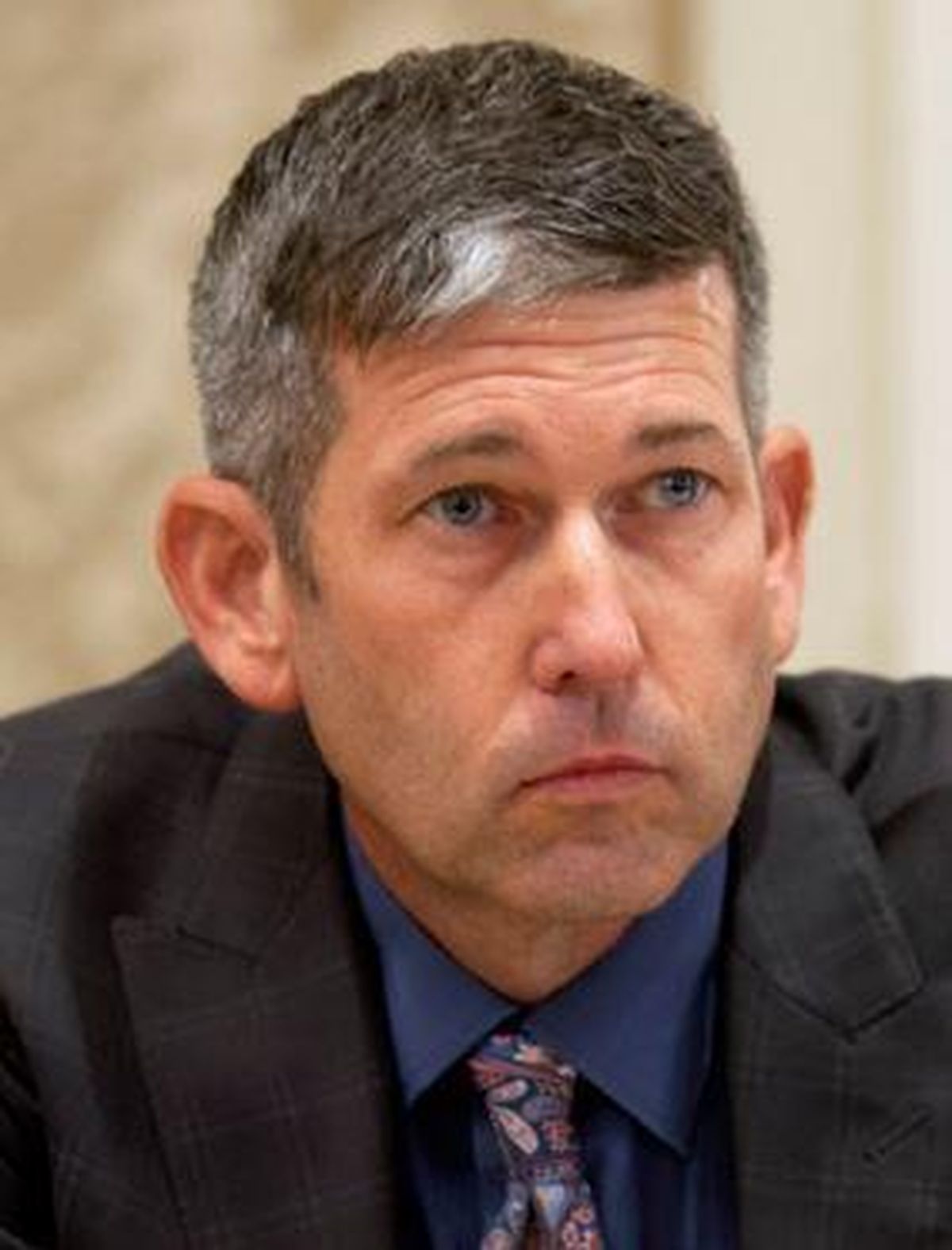Municipal Court judge challenger forges ahead despite DUI arrest

Adam Papini knows he’s probably not going to win, but that doesn’t bother him.
What does, he said, is how his colleagues, friends and confidants assumed that when he was charged with driving under the influence in June, it automatically meant he was guilty. Even lawyers and judges, who are supposed to presume innocence until the six-letter word is spoken by a jury, or a plea deal is entered, immediately treated him differently.
On Monday night, standing outside in the cold autumn air, the city prosecutor, who still hopes to unseat Municipal Court Judge Tracy Staab this November in the general election, said he’s felt “disenfranchised” and like a “second-class citizen” since his arrest – something he has in common with many of the people he used to prosecute.
“And then if you layer on top of that mental illness, addiction, homelessness, the lack of benefits, not knowing where your next meal is going to come from – do you know how subhuman you start to feel when society starts piling that on?” he said. “That changed my mind as a prosecutor and a lawyer.”
Despite going radio silent for four months following his arrest in Cheney on June 4 on suspicion of driving with a blood-alcohol level of 0.161 with his son in the car, Papini said he’s not giving up on his campaign – if anything, he said the experience has revitalized it and made him look at criminal justice in a new light.
And he still would like to be a judge if voters would have him.
His opponent, incumbent judge Staab, has remained even-keeled throughout the election process, running a traditional campaign that has overwhelmingly earned the support of the Spokane law community. She’s received endorsements from multiple judges and lawyers and high marks from the Spokane County Bar Association.
Her platform has focused on her previous work on the bench, which she has sat on since being appointed by then-Spokane Mayor Mary Verner in 2009. Specifically, on the court’s work in creating three therapeutic courts – Community Court, Veterans Court and Mental Health Court – which focus on getting repeat offenders into treatment and out of the judicial system.
In a speech she delivered at a candidate forum hosted by the bar association on Oct. 6, she told a roomful of lawyers that her willingness to leave her ego at the door and her craving to learn more about the law has helped define her legacy on the bench.
“I sit in this room, and again I’m intimidated and overwhelmed by the people before me, and that’s very much like sitting on the bench,” she said. “I know I’m not the smartest person in the room. I get that. But I am one of the hardest-working people.”
Papini, on the other hand, has taken a wholly different approach to campaigning than the one he planned on before he was arrested. The prosecutor hasn’t spent a dime on lawn signs, billboards or radio advertisements, and hasn’t made a public campaign appearance other than the same candidate forum Staab and other judicial candidates attended.
He said some of that was intentional – he’s not the type of guy who wants his name etched in stone, much less painted on a sign. But his DUI arrest has affected his campaign in more ways than just his public persona.
“I think people had a justifiable question in asking whether I would be running a campaign,” he said. “And it’s taken me several months to make the decision. But I think this has humbled me enough and educated me enough to know we need to change our system.”
Now, his platform is focused on what he calls “access to justice.” As the only candidate running who knows what it’s like to navigate the justice system as an accused, he said that even as a longtime lawyer it’s been difficult to find his bearings.
Not only has it influenced how he views what time of day hearings are held – and how that affects people who have jobs – but also how fundamentally difficult it can be for someone to find a courtroom within a large court house complex, much less locate parking or daycare services for their kids.
Considering that court dates that are pushed back months at at a time, and many defendants are fighting addiction or dealing with a lack of housing, it’s no wonder people miss their hearings and trigger a warrant for their arrest, he said. Then the whole process starts over.
“It’s a continual loop,” he said. “What that does is limit access to justice.”
He’s also a critic of how the court allocates money, saying that there’s room in the budget to purchase tools that would help defendents navigate court documents and facilities, rather than spending $800 on stand-up desks.
“I want to provide access to justice,” he said. “That’s justice for the defendant, for the victims of crime. Our system makes it very difficult for someone to access the courtroom.”
Staab shares some of his frustrations. In the past, and again this election cycle, she said that the municipal judges are on board with holding a night court from 4 to 6 p.m., for example, but the decision would ultimately fall on the shoulder of the prosecutors and public defenders unions.
She said the court has innovated in other ways, too, such as the therapeutic courts. This winter they’re adding another, called DUI Court, which Staab will run. She said it’s tailored for people who are struggling with sobriety.
But overall, she’s happy with her work on the bench. And she’s proud of her colleagues.
“I know we’re doing a good job,” she said. “And I know we can do better. And I know I can learn more. And that’s my plan.”